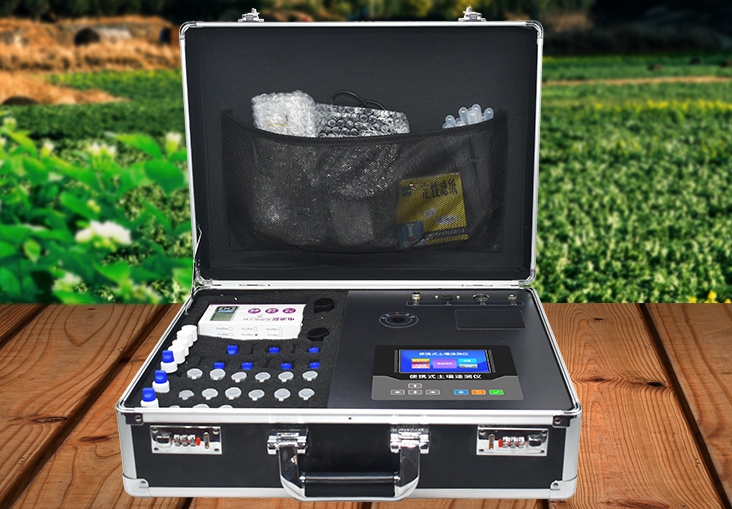Sustainable agriculture is a growing priority as we seek to balance the needs of food production with environmental preservation. To achieve this delicate balance, farmers are increasingly turning to innovative technologies that support sustainable farming practices. One such technology that has gained significant attention is soil sensors. These sensors play a vital role in sustainable agriculture by providing real-time data and insights into soil conditions, enabling farmers to make informed decisions about irrigation, fertilization, and overall crop management. In this article, we will explore the importance of soil sensors in sustainable agriculture and the ways in which they contribute to more efficient and environmentally friendly farming practices.

Monitoring Soil Health:
Maintaining healthy soil is fundamental to sustainable agriculture. Soil sensors allow farmers to assess soil health by measuring critical parameters such as moisture content, temperature, pH levels, and nutrient availability. By continuously monitoring these factors, farmers can identify potential issues early on and take proactive measures to maintain soil fertility. This includes adjusting pH levels, applying organic matter, or implementing cover cropping techniques. With soil sensors, farmers can optimize soil health, ensuring long-term sustainability and minimizing the need for chemical interventions.
Precision Water Management:
Water scarcity is a significant concern in agriculture, especially in regions facing drought or limited water resources. Soil sensors provide crucial information about soil moisture levels, allowing farmers to implement precise and efficient irrigation strategies. By monitoring moisture data in real-time, farmers can avoid overwatering or underwatering, which can result in inefficient water use and crop stress. With the precise guidance offered by soil sensors, farmers can apply the right amount of water at the right time, reducing water waste and conserving this valuable resource.
Optimizing Nutrient Application:
Proper nutrient management is essential for sustainable agriculture. Soil sensors play a pivotal role in this process by providing accurate and timely information about nutrient levels in the soil. With this data, farmers can tailor their fertilizer applications to meet the specific needs of each field or crop. By avoiding excessive fertilizer use, nutrients are utilized more efficiently by crops, minimizing the risk of nutrient runoff. By reducing nutrient runoff, soil sensors contribute to the protection of water bodies from pollution and promote sustainable farming practices.
Supporting Precision Farming:
Precision farming is an approach that aims to optimize productivity while minimizing input usage. Soil sensors are indispensable tools in precision farming as they provide critical data for site-specific management decisions. This includes determining the optimal seeding rate, identifying areas with soil variations, and adjusting planting strategies accordingly. By utilizing soil sensors, farmers can implement variable rate technology, precisely delivering seeds, fertilizers, or pesticides where they are most needed. This targeted approach leads to resource efficiency, cost reduction, and minimized environmental impact.
Data-Driven Decision Making:
Soil sensors generate vast amounts of data that can be analyzed and utilized to make informed decisions. Through data analytics and predictive modeling, farmers can gain valuable insights into long-term trends and patterns related to soil health, crop growth, and pest management. These insights enable farmers to anticipate challenges, adjust cultivation practices, and make data-driven decisions that promote sustainability. The integration of soil sensor data with other technologies, such as remote sensing and weather forecasting, further enhances decision-making capabilities, allowing farmers to optimize yields while minimizing negative environmental impacts.
Innovation in Soil Sensor Technology:
Advancements in soil sensor technology have made them more accessible and user-friendly. Wireless and internet-of-things (IoT) enabled sensors allow continuous, automated monitoring of large areas of farmland. These sensors can transmit data remotely, enabling farmers to access real-time information via mobile apps or web-based platforms. Furthermore, advancements in sensor design have improved accuracy and reliability, ensuring precise and consistent measurements. These innovations in soil sensor technology not only enhance their usability but also facilitate widespread adoption among farmers, ultimately promoting sustainable agriculture practices.

Conclusion: Soil sensors play a critical role in sustainable agriculture by providing real-time data and insights into soil conditions. By monitoring soil health, optimizing water and nutrient management, supporting precision farming, and facilitating data-driven decision-making, soil sensors contribute to more efficient and environmentally friendly agricultural practices. As the world faces challenges such as climate change, water scarcity, and land degradation, the integration of soil sensors becomes increasingly essential for the future of sustainable food production. To promote sustainable agriculture on a global scale, it is vital for farmers, researchers, and policymakers to embrace and leverage the power of soil sensor technology. By doing so, we can create a more resilient and sustainable agricultural system, ensuring long-term food security while preserving our natural resources for future generations.
